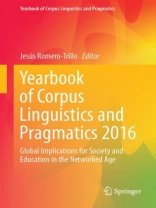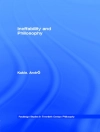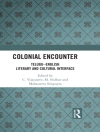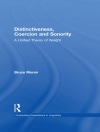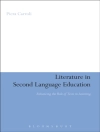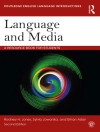The present volume of the Yearbook of Corpus Linguistics and Pragmatics series, presents cutting-edge corpus pragmatics research on language use in new social and educational environments.
The Yearbook of Corpus Linguistics and Pragmatics offers a platform to scholars who carry out rigorous and interdisciplinary research on language in real use. Corpus Linguistics and Pragmatics have traditionally represented two paths of scientific research, parallel but often mutually exclusive and excluding. Corpus Linguistics can offer a precise methodology based on mathematics and statistics while Pragmatics strives to interpret intended meaning in real language. This series will give readers insight into how pragmatics can be used to explain real corpus data, and how corpora can illustrate pragmatic intuitions.
Cuprins
Introduction; Jesús Romero-Trillo.- Part I: SOCIETY, SOCIAL NETWORKS AND CORPUS PRAGMATICS.- Towards a cyberpragmatics of mobile instant messaging; Francisco Yus.- Connected parents: combining online and off-line parenthood in blogs and vlogs; Carmen Santamaría-García.- Healing and comfort on the net: Gender and emotions in domestic violent environments; Eva M. Mestre-Mestre.- “The more please [places] I see the more I think of home”: On gendered discourse of Irishness and migration experiences; Nancy E. Avila-Ledesma & Carolina P. Amador-Moreno.- A cross-linguistic study of conceptual metaphors in financial discourse; María Muelas-Gil.- Part II: LINGUISTIC AND EDUCATIONAL IMPLICATIONS OF CORPUS PRAGMATICS.- Teaching pragmatics with corpus data: The development of a corpus-referred website for the instruction of routine formulas in Russian; Edie Furniss.- Beyond engaged listenership: Assessing Spanish undergraduates’ active participation in academic mentoring sessions in English as academic lingua franca; Fiona Mac Arthur.- Focusing on content or language?: comparing paired conversations in CLIL and EFL classrooms, using a corpus; Keiko Tsuchiya.- Writers’ uncertainty in a corpus of scientific biomedical articles with a diachronic perspective; Andrzej Zuczkowski, Ramona Bongelli, Ilaria Riccioni, Massimiliano Valotto & Roberto Burro.- Chinese University Students’ Development of Pragmatic Skills in L2 Italian: a Corpus-Based Study; Andrea Scibetta.- BOOK REVIEWS: Review of Bamford, J., Cavalieri, S. and Diani, G. (Eds). (2013) Variation and Change in Spoken and Written Discourse: Perspectives from Corpus Linguistics. Amsterdam: John Benjamins; Claire Childs.- Review of Kruger, A., Wallmach, K. and Munday J. (2011) Corpus-Based Translation Studies: Research and Applications. London and New York: Bloomsbury; Sofia Malamatidou.- Review of Hyland, K., Huat, C. M. and Handford, M. (2012). Corpus Applications in Applied Linguistics. London: Bloomsbury; Karen Donnelly.
